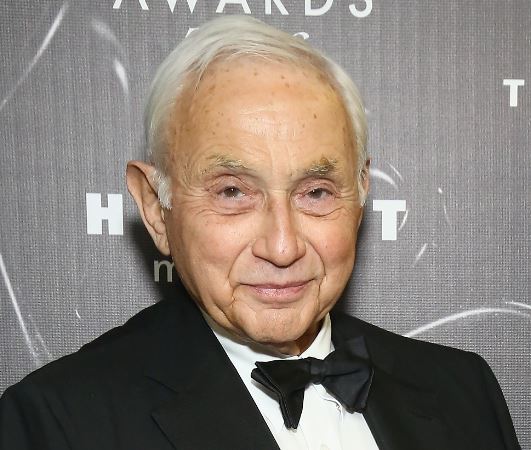Leslie Wexner at a Glance
Leslie Wexner’s Net Worth: A Billionaire’s Rise and Fall
Leslie Wexner, an American businessman, once stood as a titan of the retail industry. With an estimated net worth of $6 billion, he was, for much of his adult life, considered the wealthiest individual in Ohio. However, Wexner’s legacy is now intertwined with scandal, dramatically reshaping his public image and business empire. This article delves into Wexner’s life, exploring his remarkable career, significant philanthropic endeavors, the controversies that have plagued him, and his ultimate fall from grace.
Early Life and Education
Leslie Wexner was born on September 8, 1937, in Dayton, Ohio, to Harry and Bella Wexner. His father was a Russian-born Jewish immigrant, and his mother, also of Russian-Jewish descent, hailed from Brooklyn, New York. He grew up with a younger sister, Susan. Wexner’s educational journey began at Bexley High School, followed by studies at The Ohio State University. He graduated in 1959 with a degree in business administration. He briefly attended the Moritz College of Law at Ohio State University after his undergraduate studies.
Career Beginnings and The Limited
Wexner’s entrepreneurial spirit took root early, nurtured by his parents’ clothing store, Leslie’s. He gained crucial business experience by observing profit and loss margins while managing the store during his parents’ vacation. This experience proved invaluable when he decided to launch his own venture. With a $5,000 loan from his aunt Ida, matched by a bank loan, Wexner founded The Limited in 1963. The name reflected the brand’s initial focus on a limited range of moderately-priced merchandise, including skirts, shirts, and sweaters. The first Limited store opened in the Kingsdale Shopping Center in Upper Arlington, Ohio, on August 10, 1963. He swiftly expanded, opening a second store a year later. By the end of the decade, The Limited had gone public.
L Brands and the Expansion of a Business Empire
Wexner’s vision and business acumen drove rapid expansion throughout the 1970s. The 100th Limited store opened in 1976, marking a significant milestone. A strategic acquisition of Mast Industries, a manufacturer and importer, provided a competitive edge. The 1980s witnessed a doubling of Wexner’s retail holdings, most notably with the acquisition of Victoria’s Secret, a lingerie retailer. Purchased for a mere $1 million, Wexner transformed Victoria’s Secret into a billion-dollar brand by the 1990s.
Wexner further solidified his business empire during the 1990s. He founded Bath & Body Works, which initially sold soaps, lotions, candles, and fragrances. Eventually, L Brands was rebranded under the name Bath & Body Works. Through his conglomerate, Wexner has operated such other notable brands as Henri Bendel, Abercrombie & Fitch, Express, and La Senza.

Getty
The Troubled Relationship with Jeffrey Epstein
The most significant and damaging aspect of Wexner’s life is his relationship with Jeffrey Epstein. In the 1980s, Wexner hired Epstein, a financier, to manage his finances. Their association continued until 2007, with Epstein acting as Wexner’s main billionaire client. During the early 1990s, when Wexner’s net worth was estimated at $1.8 billion, he granted Epstein power of attorney and appointed him as a trustee to the Wexner Foundation.
Wexner faced severe criticism for his alleged inaction regarding complaints about Epstein’s inappropriate and abusive behavior. Many of Epstein’s crimes reportedly took place at Wexner’s properties, where Epstein ran his business. This close association with Epstein significantly tarnished Wexner’s reputation. The 2022 documentary “Victoria’s Secret: Angels and Demons” delves into this problematic relationship, revealing its detrimental impact.
Philanthropy and Giving Back
Despite the controversies, Wexner has a long history of philanthropic endeavors. In 1989, he and his mother made a $1 million personal donation to the United Way. Wexner’s generosity has extended to his alma mater, The Ohio State University, with a substantial donation of $100 million in 2011 to establish the Wexner Center for the Arts, which remains the largest single gift in the university’s history. His other major philanthropic efforts include the Wexner Foundation, which supports Jewish professionals and community leaders, and the Mega Group, a gathering of wealthy businessmen focused on Jewish issues.

MEHDI FEDOUACH/AFP/Getty Images
The 1954 Ferrari Controversy
In 2013, Wexner made headlines when he purchased a 1954 Ferrari 375 Plus at auction for $16.5 million. However, the acquisition quickly led to legal complications due to a disputed ownership history of the vehicle. It took three years and an additional $12 million in legal fees before the ownership issue was resolved, allowing Wexner to retain the Ferrari with a clear title.
Personal Life and Properties
In early 1993, at age 55, Wexner married Abigail S. Koppel, then 31. The couple has four children and resides in a 30-room, $47 million Georgian-inspired estate spanning approximately 336 acres in New Albany, Ohio. For two decades, this estate hosted the Annual New Albany Classic Invitational Grand Prix & Family Day, a charity event featuring professional show-jumping riders. However, Wexner’s wife announced the end of the event in early 2018.
Wexner also owns the 18th-century Foxcote House in Warwickshire, England. Additionally, he possesses the 315-foot superyacht Limitless, one of the largest privately-owned yachts worldwide.
/**/
Conclusion
Leslie Wexner’s life reflects a complex narrative of entrepreneurial success, vast wealth, and significant philanthropic contributions, ultimately overshadowed by a deeply troubling association. His story serves as a reminder of the potential impact of personal connections and the lasting consequences of actions, both in the business world and in personal relationships. Despite the significant financial impact of his business decisions, his decisions surrounding his relationship with Jeffrey Epstein created a stain on his legacy.

